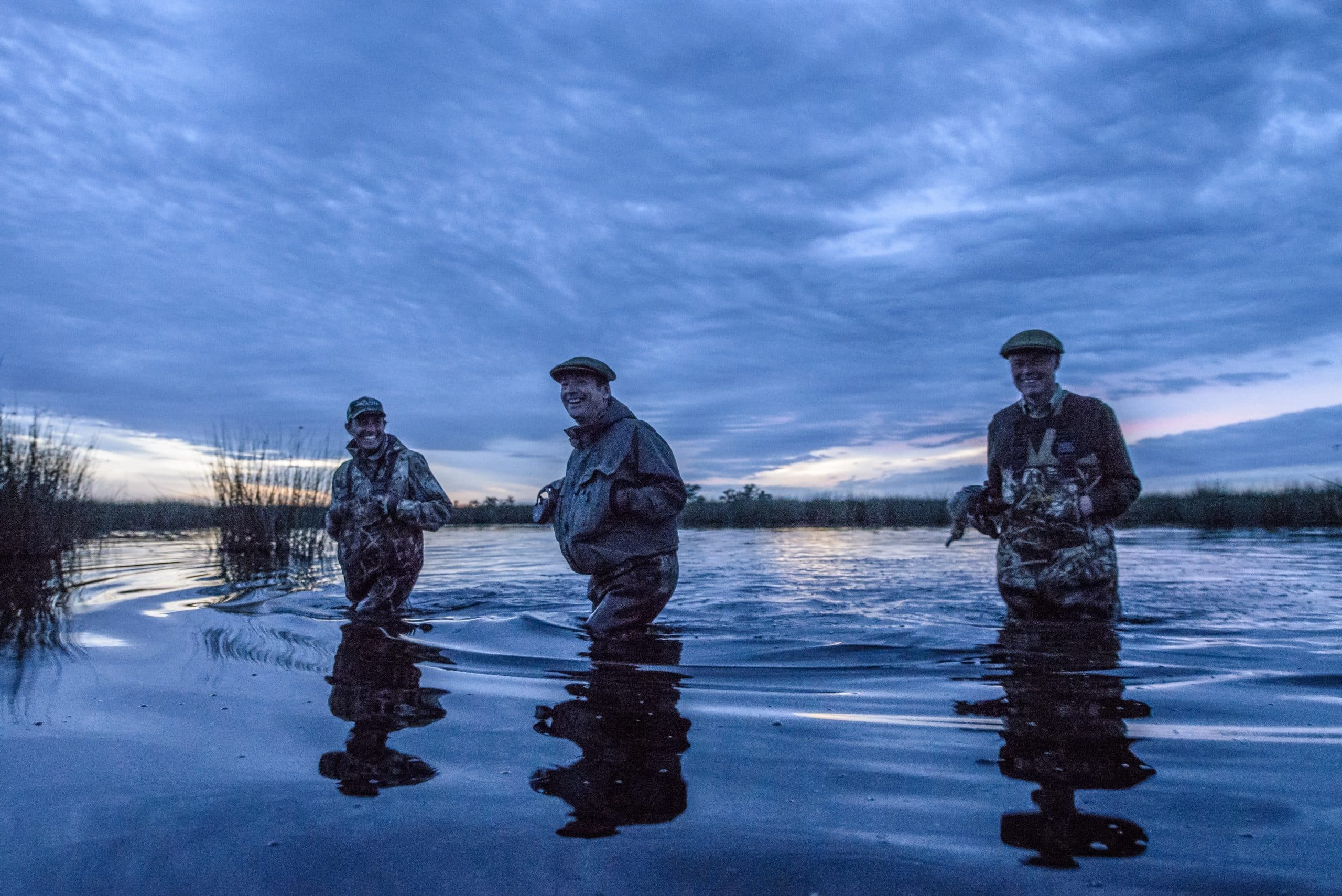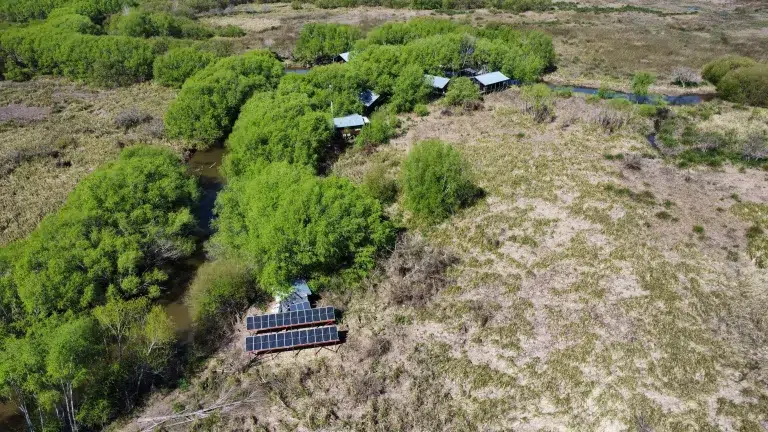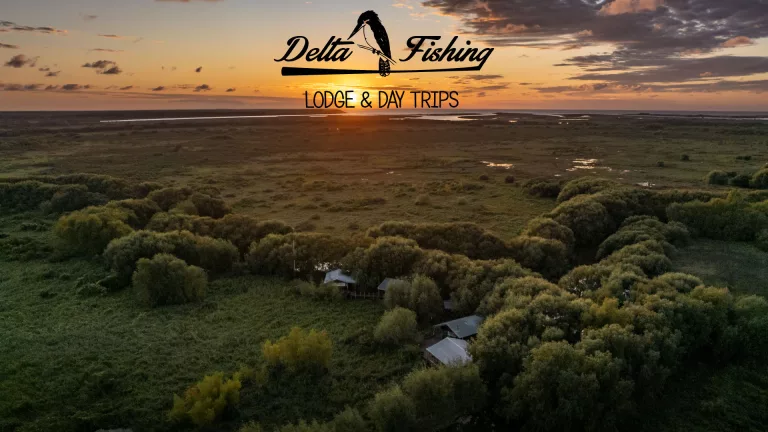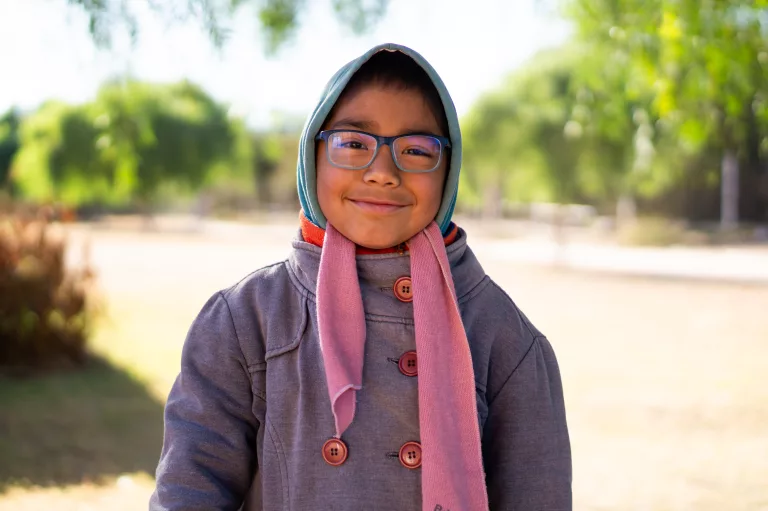By Doug Larsen, For The Retriever Journal.
There was a discussion over breakfast at the diner one morning during duck season. It was mostly about continuing to duck hunt, while simultaneously getting older. This may seem odd if you stop to think about it for a moment because this is something we all do. We are all getting older every second. But by older, I mean those among us who are in their fifties, or sixties, or beyond. People are living longer than ever, and duck hunting’s constituency is no different than the population at large.
Additionally, duck hunting is getting older, and it is a sport dominated by graying men. And if you think that shrinking habitat is the biggest threat to duck hunting, you’d be dead wrong. Lack of participation will decimate waterfowl hunting in the next two decades unless youth and females begin to pour into the sport.
On that cheery note, if you are an adult with a television, you are probably familiar with most of the age-related ailments we discussed. A couple hunters in their late sixties talked about arthritis, and one old fellow in his seventies gloated about being fit and happy to still be able to duck hunt, but he acknowledged that his wife was concerned about him going out on the water alone. Many stated that things had changed. For example, I know my hands get colder faster than they used to. One fellow said his feet just can’t take the cold anymore. To a man, everyone said they would no longer go hunting in a hard rain. (Note to younger hunters—less hunting pressure on rainy days).
All sorts of issues were raised at this impromptu meeting of the waterfowl A.A.R.P. We talked about health, eyesight, and keeping the weight off. Ironically, we were in a diner, and several of us had just polished off a plate of biscuits and sausage gravy. One-liners were trotted out for a lap around the table, including things like “it beats the alternative.”
While the focus of the conversation that day was about the physical aspects of being able to hunt as we got older, I left the diner and got into my truck thinking that, for all the talk about physical stuff, nobody seemed to talk about motivation. Why do we keep getting out of bed at four in the morning? Why do we put out decoys, then three hours later, pick them back up? Why do we train, and drill, and feed, and house a dog, or two, or more- just so that they can hunt with us for fifteen, or twenty, or maybe thirty days at the very most? What drives us to spend the time, and the money, and to endure the family strife, just to kill a bird with pretty feathers and webbed feet? The longer I hunt, and the more ducks I kill, the more I want to hunt for completely different reasons, and that is probably the biggest change in my approach over my hunting lifetime.
I once heard a great statement about fishing, and I have found it to be largely true. When you first start to fish, you just want to catch a lot of fish. You want to go every day, and you want to throw a fish up on the bank every few seconds. Then you get tired of catching fish. So, you begin to focus on catching big fish. You can’t be bothered with throwing little fish on the bank any longer. You want a record fish—a huge salmon, or a marlin so big that they write the weight on the flank of the fish in grease pen.
Finally, in the last phase of an angler’s development, he just wants to go fishing. What about all these guys at the diner? We just want to go duck hunting. I’m not saying that we have shot so many ducks that we have moved onto another phase in our lives, but we have. I know that I went on at least three hunts this season, just because I had not been for a day or two, and the dogs made me feel guilty. So, we went, the dogs and I. The dogs sat on their stands, the sun shone brightly, and the wind blew lightly from the east. Terrible duck day, but the dogs were happy to be out, and that was enough for me.
There were years in my life when I was a much younger man with less responsibility when I duck hunted every single day of the season. I hunted in the rain then, no doubt. I never missed a day. Then it slowly dawned on me, of seven days in a typical week, about three of those days have the potential to be any good. This is either because the weather is likely to be favorable, the wind is predicted to blow, or a front is passing through.
Depending on where you live those three good days could also be influenced by tides, harvest conditions, or other factors. But the point is, only about three days per week are likely to be decent. The other four days are destined to be mediocre. So, why are we going the other four days? Stay home. Save your gas money, your ammo, and your kitchen pass for one of the three good days. Oh, by the way, many duck hunters also have jobs they need to make an appearance at from time to time.
Whenever I think about who hunts the most days each season, I’m reminded of this new breed of waterfowler I see on television on occasion-the “whack and stack” proponents with decals on their trucks and box trailers full of decoys, and stocking caps pulled down over their eyes. Their message seems to be “go hard or go home” or “hunt every day from dawn to dusk.” It doesn’t take motivation to just show up, it takes motivation to show up for a worthwhile reason.
Some of the advertisers make their commercials look the same say- like we are out there in sleet and mud every minute of the duck season in some sort of fight. It’s just not that way. Look back at the most beloved waterfowl writers. Gordon MacQuarrie wasn’t out hunting every single day. Read his work. Some of his best writing was about the excitement of getting out of town; early morning car rides, overnighting in a cabin before the hunt. Nash Buckingham’s tales of southern duck hunts also gave the impression that he wasn’t out at Beaver Dam hammering ducks day after day. He hunted with men who had jobs, and who only hunted when they could.
I’m also reaching a point where I only want to kill a duck the way I want to kill a duck. I am not going to shoot a passing bird unless I’m desperate for one of my dogs to get a retrieve. While I will take the time to mess around with a spinning wing decoy if we are hunting with kids (they are effective and they remain legal in many states) but I absolutely hate hunting over them, messing with them, charging them, and tending to them in general and I will not use one to improve my own hunting. I’m just not motivated to mess with a spinner.
As you get older, I suspect you will find that you will value the experience more than the killing and that you will value quality time in the blind on quality days, over just putting in the hours to prove that you can. I know that in my lifetime I have probably shot hundreds of ducks in the pouring rain, and a bunch of ducks on hunts when I didn’t have a dog along. I can’t seem to remember any of the details of those hunts or those dead ducks. But I see the look in my dog’s eye, as he stares at me over a mouth full of greenhead mallard, waiting for me to take the duck from him. Then I lay the duck breast up on the bench, and we both sit with the sun warm on our faces, and that is motivation enough.




